Die Hard hit theaters in 1988 and quickly cemented itself as one of the greatest action movies ever made. But, whether it deserves a spot on the list of Christmas classics is a debate that refuses to die. The plot follows John McClane, a New York cop who flies to Los Angeles to patch things up with his wife, but he ends up fighting off terrorists who crash her company’s Christmas party. The movie takes place on Christmas Eve, there are decorations in the background, and the soundtrack slips in a couple of holiday songs.
Disclaimer: This article contains the writer's opinion. Readers’ discretion is advised.
1) Primary Genre
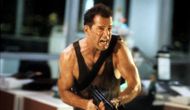
Die Hard is, first and foremost, an action movie. Its plot revolves around high-stakes violence, hostage situations, and life-or-death decisions. These elements are staples of action films, not Christmas movies. The intensity of the gunfights and explosions leaves little room for holiday warmth or cheer. While Christmas provides the setting, it does not shape the tone or drive the story. The movie’s appeal comes from its tension and fast-paced sequences, not feel-good moments or heartfelt messages. It’s the kind of movie people watch for adrenaline, not nostalgia or holiday traditions, which separates it from the Christmas genre.
2) Release Timing

When Die Hard was released in July 1988, it was marketed as a summer blockbuster. Studios save Christmas-themed movies for November and December, to attract audiences looking for holiday entertainment. The release timing of Die Hard suggests it was never intended to be viewed as a Christmas film. Instead, it was positioned as a high-energy action thriller designed to dominate summer box office numbers. The decision shows how the studio saw the film—as a crowd-pleaser built around suspense and spectacle rather than a sentimental holiday story meant to be enjoyed during the festive season.
3) Lack of Christmas-centric Plot
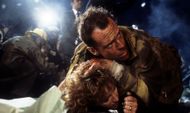
The plot of Die Hard has little to do with Christmas. It could easily take place at any time of year without changing the core story. John McClane’s mission is to save hostages and stop a group of criminals, and while the setting is a Christmas party, it’s more of a plot device than a meaningful part of the narrative. The holiday serves as a backdrop to explain why so many people are gathered at the office after hours, but it doesn’t influence the characters’ actions or decisions. The story is about survival and redemption, not holiday traditions or celebrations.
4) Absence of Traditional Christmas Messages

Most Christmas movies focus on themes like family, forgiveness, kindness, and the magic of the season. Die Hard doesn’t lean into any of these ideas. Instead, it highlights courage, resilience, and resourcefulness, qualities often associated with action heroes rather than Christmas characters. There are no scenes in the film, where people come together to share gifts, express gratitude, or reconnect emotionally, which are hallmarks of holiday films. While McClane’s efforts to reconnect with his wife add some emotional depth, the focus stays on the action rather than family unity or festive values. It is hard to call Die Hard a Christmas movie when it skips the emotional tone most holiday films embrace.
5) Minimal Holiday Iconography
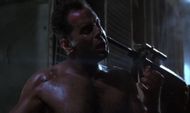
Although Die Hard takes place at a Christmas party, it doesn’t lean heavily on holiday visuals. The decorations are subtle and mostly serve as background details rather than focal points. There’s a tree in the office and some scattered lights, but the majority of the movie unfolds in sterile office spaces and industrial settings that don’t feel festive. Even the Christmas music is brief and overshadowed by the movie’s suspenseful score. Traditional Christmas films rely on warm, colorful visuals to create a holiday atmosphere, but Die Hard sticks to dark hallways and shattered glass, reinforcing its identity as an action movie.
6) Soundtrack Choices
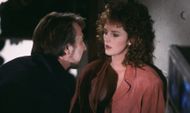
While Die Hard ends with the cheerful notes of ‘Let It Snow,’ the rest of its soundtrack tells a different story. The score leans heavily on tension, suspense, and bursts of intensity to match the film’s action-driven tone. Composer, Michael Kamen, crafted music designed to amplify drama rather than evoke the holiday spirit. Even the occasional use of Christmas tunes feels more like irony than celebration. Instead of setting the mood for holiday cheer, the music underscores the danger and chaos unfolding inside Nakatomi Plaza. The choice reinforces that Die Hard is first and foremost an action movie, not a Christmas tale
7) Character Motivations Unrelated to Christmas

The actions of both the heroes and villains in Die Hard have nothing to do with Christmas. John McClane’s fight to rescue his wife is rooted in personal redemption and survival, not holiday values like generosity or forgiveness. On the other side, Hans Gruber, and his team are motivated by greed and deception, using the Christmas party as a convenient cover for their heist. The holiday setting may explain why people are gathered in the building, but it does not shape anyone’s decisions or behaviors. The characters’ actions are based on their personal goals, not seasonal traditions, making the Christmas angle feel incidental rather than central.
8) Violence and Intensity
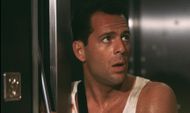
Die Hard doesn’t pull punches when it comes to violence. From brutal hand-to-hand fights to explosions and gunfire, it keeps the stakes high and the action is relentless. The body count climbs quickly, and the villains are ruthless, killing without hesitation. This level of intensity clashes with the lighthearted and heartwarming tone people expect from Christmas movies. Instead of offering a feel-good story about love and togetherness, Die Hard delivers sharp-tongued humor and moments of brutal realism. While the action is entertaining, it doesn’t match the atmosphere of traditional holiday favorites.
9) Creator Intent

People behind Die Hard have repeatedly said it wasn’t made as a Christmas movie. Bruce Willis has stated outright that it doesn’t belong in the holiday category, and the scriptwriters have explained that the Christmas setting was more about timing than theme. Even the film’s summer release date suggests it wasn’t meant to be tied to the holiday season. Over time, fans rebranded it as a Christmas classic, but that wasn’t the original goal. The creators focused on delivering a high-energy action thriller, not a seasonal story, and their intent continues to fuel debates about where the movie truly belongs.
10) Setting as a Coincidence

The Christmas Eve setting in Die Hard feels more like a plot device than a meaningful choice. This party explains why the building is full of people after hours and why it is mostly empty otherwise, making it easier for the villains to take control. But beyond setting the stage, Christmas doesn’t play much role in the narrative. The same plot could unfold during any other celebration, from New Year’s Eve to a company anniversary. The holiday backdrop adds a layer of irony, but it doesn’t shape the characters, themes, or overall message. It is just there for convenience, not significance.
11) Absence of Christmas Miracle Trope
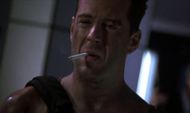
Many Christmas movies lean on miracles to deliver their emotional payoff. From magical transformations to last-minute rescues, these moments define the genre and reinforce themes of hope and wonder. Die Hard doesn’t follow this formula. Instead of divine intervention, it highlights human resilience, quick thinking, and brute determination. John McClane survives through skill and grit, not because of fate or holiday magic. While his victory might feel satisfying, it is not the kind of uplifting miracle viewers expect in a Christmas story. The lack of supernatural elements leaves the movie feeling grounded in action rather than the sentimentality tied to the season.
12) Limited Family Dynamics

Christmas movies often revolve around family, exploring themes of forgiveness, togetherness, and reconnection. While Die Hard does touch on John McClane’s strained marriage, it focuses on action rather than emotional growth. His relationship with Holly serves more as motivation for his fight than as a heartfelt subplot. They have a few quick exchanges, but the movie doesn’t dive into their history or struggles. It is not about rebuilding their relationship, but survival. Compared to classics that center around family bonds, Die Hard feels distant. The characters reunite in the end, but the moment lacks the emotional weight seen in true holiday films
13) Cultural Perception
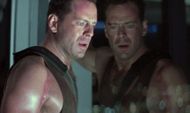
Despite the ongoing debate, most people don’t think of Die Hard as a Christmas movie. Polls consistently show that audiences view it as an action thriller first and foremost. The holiday setting adds flavor but doesn’t define the movie’s identity. Many viewers only associate it with Christmas because of the tradition of watching it during the holidays, not because it shares the themes or tone of other seasonal favorites. The debate itself has become part of the movie’s legacy, but the cultural consensus leans toward it being more of a high-octane action flick than a feel-good holiday classic.
14) Marketing and Promotion

When Die Hard hit theaters, it was sold as an action-packed thriller, not a Christmas movie. The trailers focused on explosions, gunfights, and suspenseful moments, leaving little room for holiday cheer. Even the poster highlighted Bruce Willis as the tough, lone hero rather than leaning into the festive backdrop. Studios knew the movie’s appeal was rooted in its high-energy action, not its seasonal setting. If it had been intended as a Christmas film, it likely would have been released in November or December instead of the summer. The way it was marketed makes it clear that Christmas was just part of the setup, not the story’s focus.
15) Sequel Settings
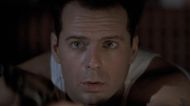
The Die Hard franchise moved away from Christmas entirely after the first film, showing that the holiday setting was never essential to its formula. Later entries in the series focus on new locations, bigger threats, and even more intense action sequences without tying themselves to any seasonal themes. If Christmas had been an integral part of Die Hard’s identity, the sequels would have leaned into it. Instead, they double down on action and suspense, proving that the holiday backdrop in the original was just a convenient way to stage the story, not something that defined the franchise’s tone or direction.
Your perspective matters!
Start the conversation
